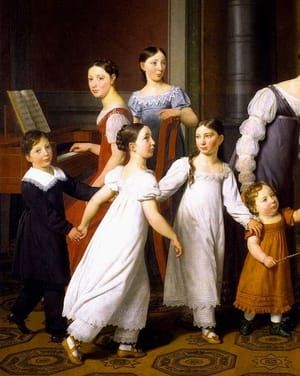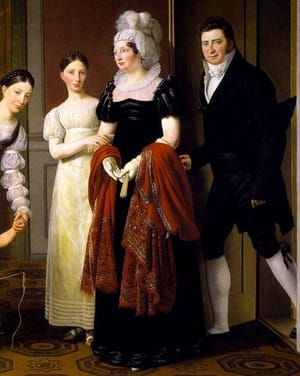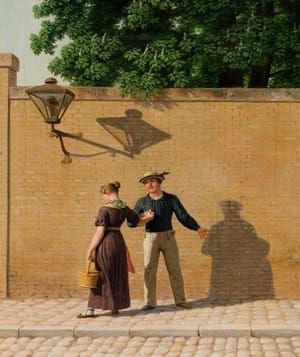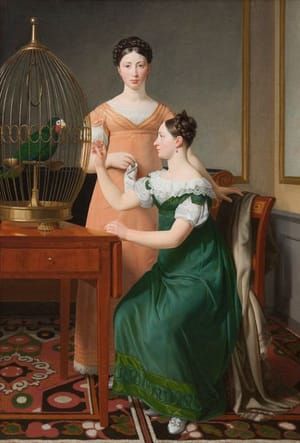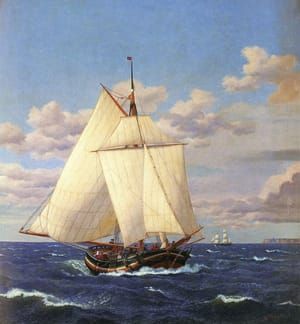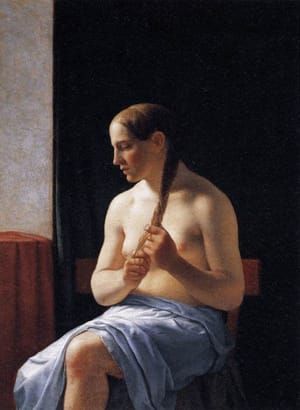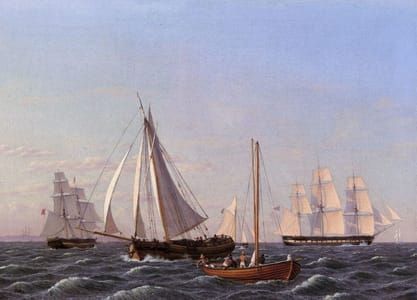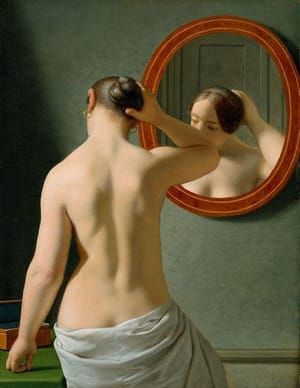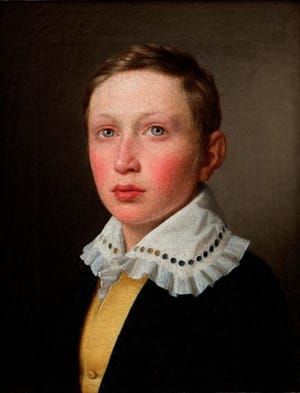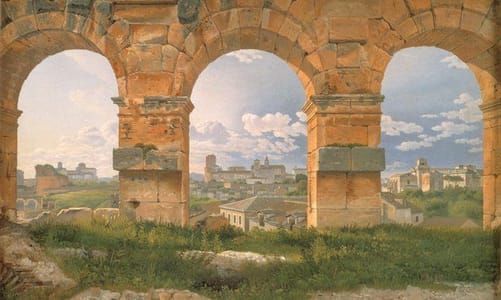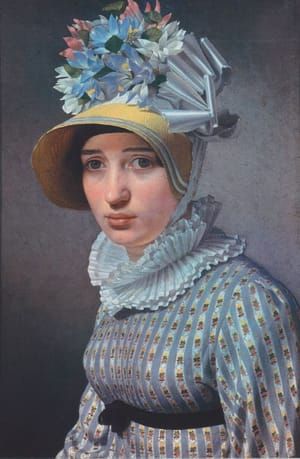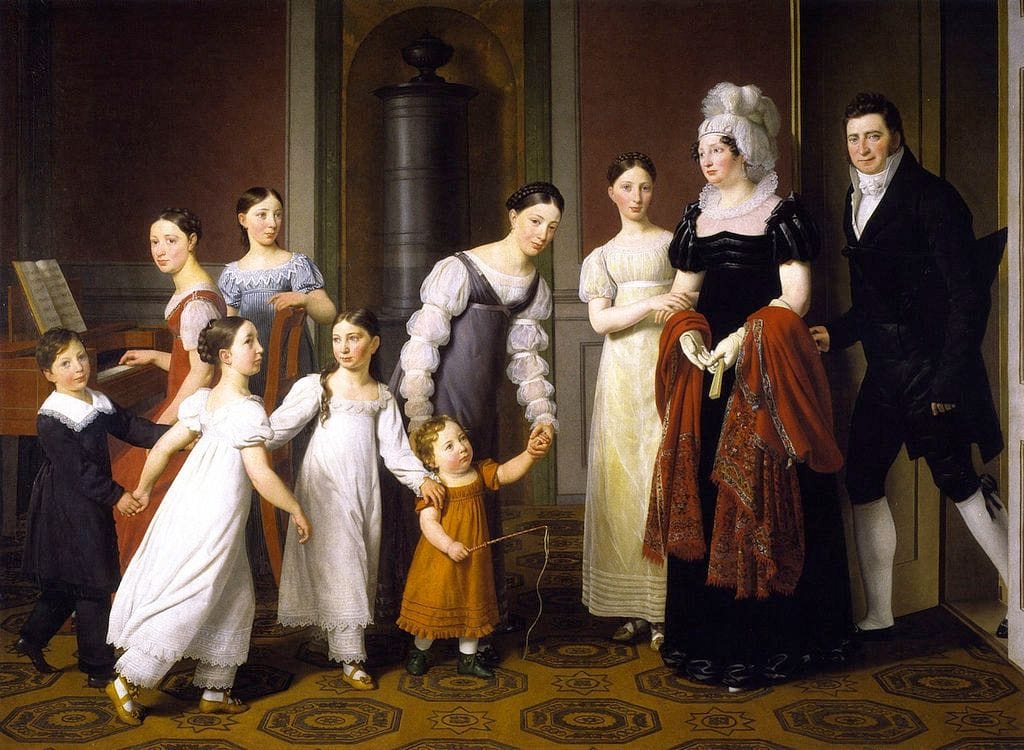

The Nathanson Family, 1818
C. W. Eckersberg
Mendel Levin Nathanson ( 20 November 1780, Altona, Holstein - 6 October 1868, Copenhagen), businessman, economic writer and editor, patron of the Arts, and a leading figure in the integration of the Jews into Danish society.
The son of a poor Jewish merchant, his early education was negligent; he learned a little Hebrew through bible study, and at the age of twelve his father enrolled him in a Catholic school, but after six months he was only able to write numbers and letters, and read a little German. At this point, his grandmother took him to Copenhagen where his grandfather was the head of the fairly large trading house of A. J. Meyer & Son. Almost completely uneducated and speaking no Danish, his education was now taken in hand by an uncle; he more than excelled in his studies, and in two years time was the business' bookkeeper and handled all their correspondence. Energetic and mature for his yeaes, at the age of only eighteen he established his first business, as a haberdashery wholesaler. Innovative and far-sighted, he rose quickly in the business world, joining the large Copenhagen banking firm of Meyer & Trier in 1806, and came to be seen as a much respected expert on business and economics.
Early on, he began to implement his plans to help the position of Jews in Denmark. He was particularly concerned with education for Jewish children, which was generally as bad as his had been. He realized that in order to advance Jewish claims to civic rights and liberties he must first help them to acquire a liberal education. In 1805, he founded the Jewish Free School for boys, and five years later the Caroline School for Girls. Even in those times when his own finances were not at their best, he was an untiring and generous supporter of these schools. When the Jews of Denmark received full civic rights, by a royal decree of 29 March 1814, it was due, in large part, to Nathanson's efforts. Though himself always an advocate for the Jewish people, all of his children, with his sanction, converted to Christianity.
Later in life, as a result of his economic writings, he was chosen as editor of the daily newspaper Berlingske Tidende. Then poorly produced and far from successful, under Nathanson's tenure it became an important and popular journal, which, one of the oldest newspapers in the world, it still is to this day.
Something I just noticed right before posting: Mrs. Nathanson seems a completely static and contained figure amidst so much movement, but she's actually only stopped to remove her gloves; I love the detail of the pulled-out fingers of the right glove.
Married at the age of 19, he and his wife had numerous children, and his home was constantly visited by those in literature and the Arts; poets, painters, composers, actors, and the like were always welcome. An inveterate optimist, jolly and fun-loving, generous, and a great story-teller, he was much honored in his lifetime, and died not long before what would have been his 88th birthday.
For several years, Nathanson was Eckersberg's most important client. Apparently, the artist's original concept for this large group portrait was to portray the family in a casual and private moment; in one preliminary sketch, he depicted children and parents alike performing a circle dance. But his patron had a specific purpose behind the commission, something that would show just how far the poor Jewish boy had come in life, something to commemorate a specific incident: Nathanson and his wife are shown arriving home, being greeted by their children after their audience with the Queen.
(http://godsandfoolishgrandeur.blogspot.nl/2014/10/the-nathanson-family-by-christoffer.html)
Uploaded on Jul 30, 2017 by Suzan Hamer
C. W. Eckersberg
artistArthur
Wait what?

